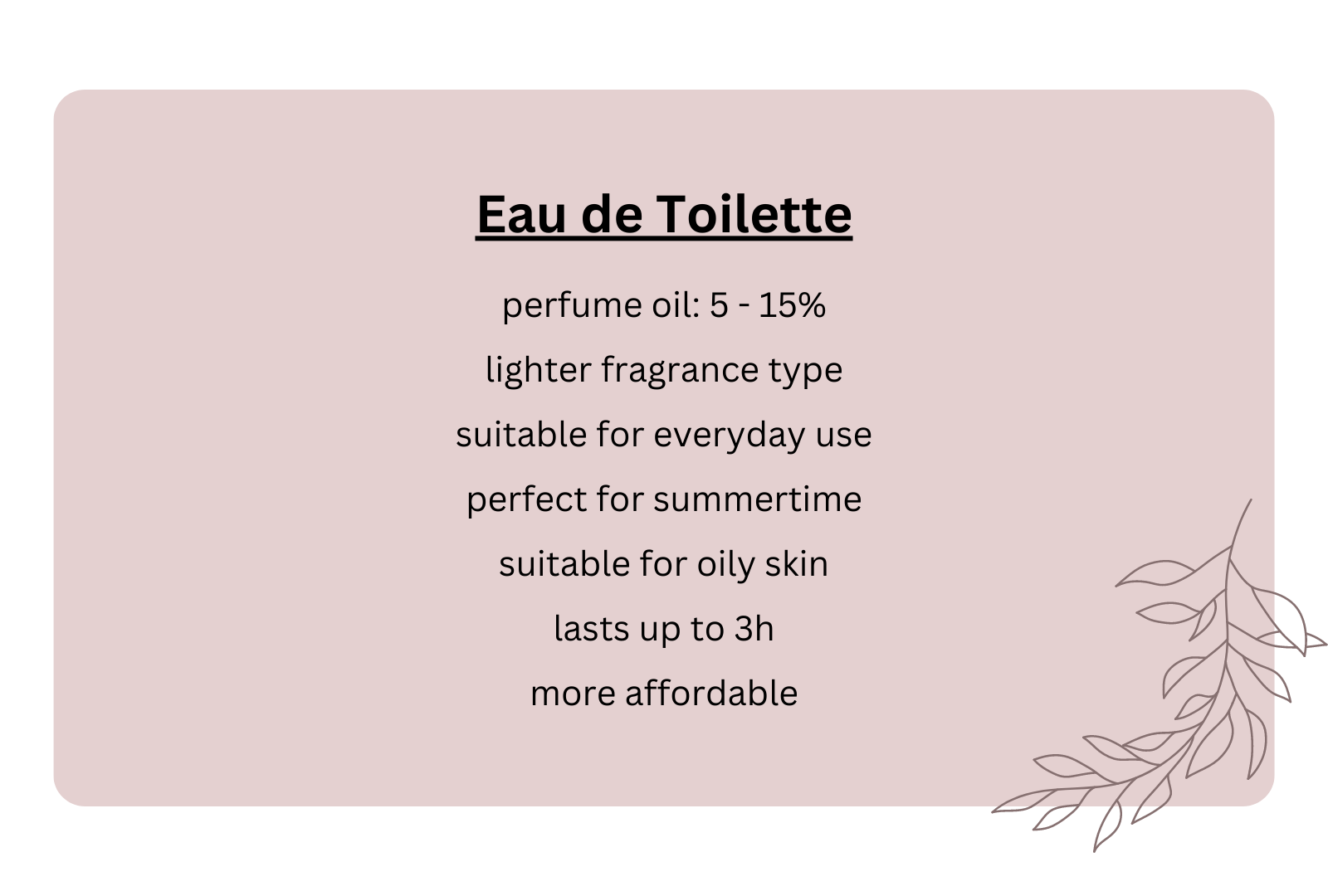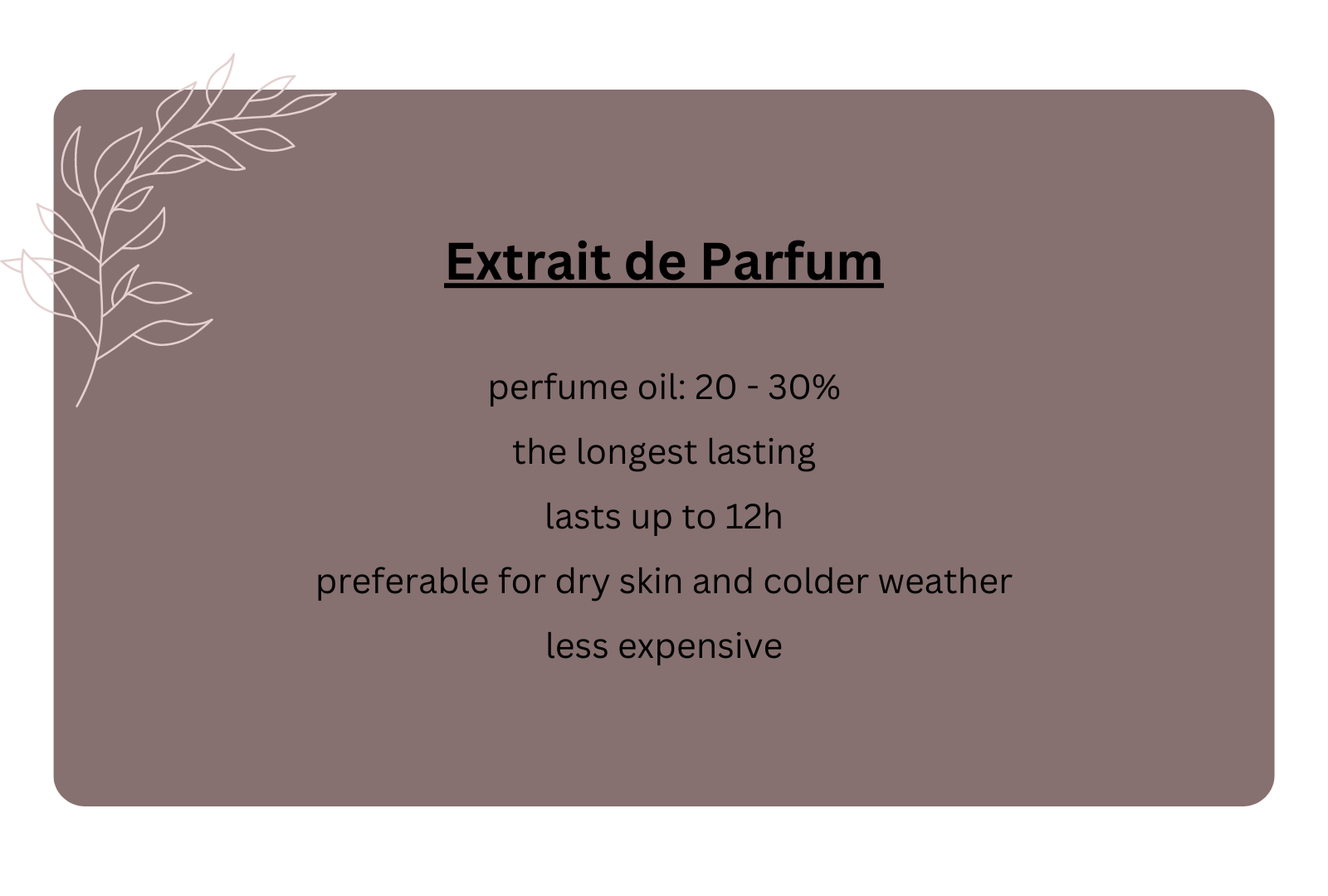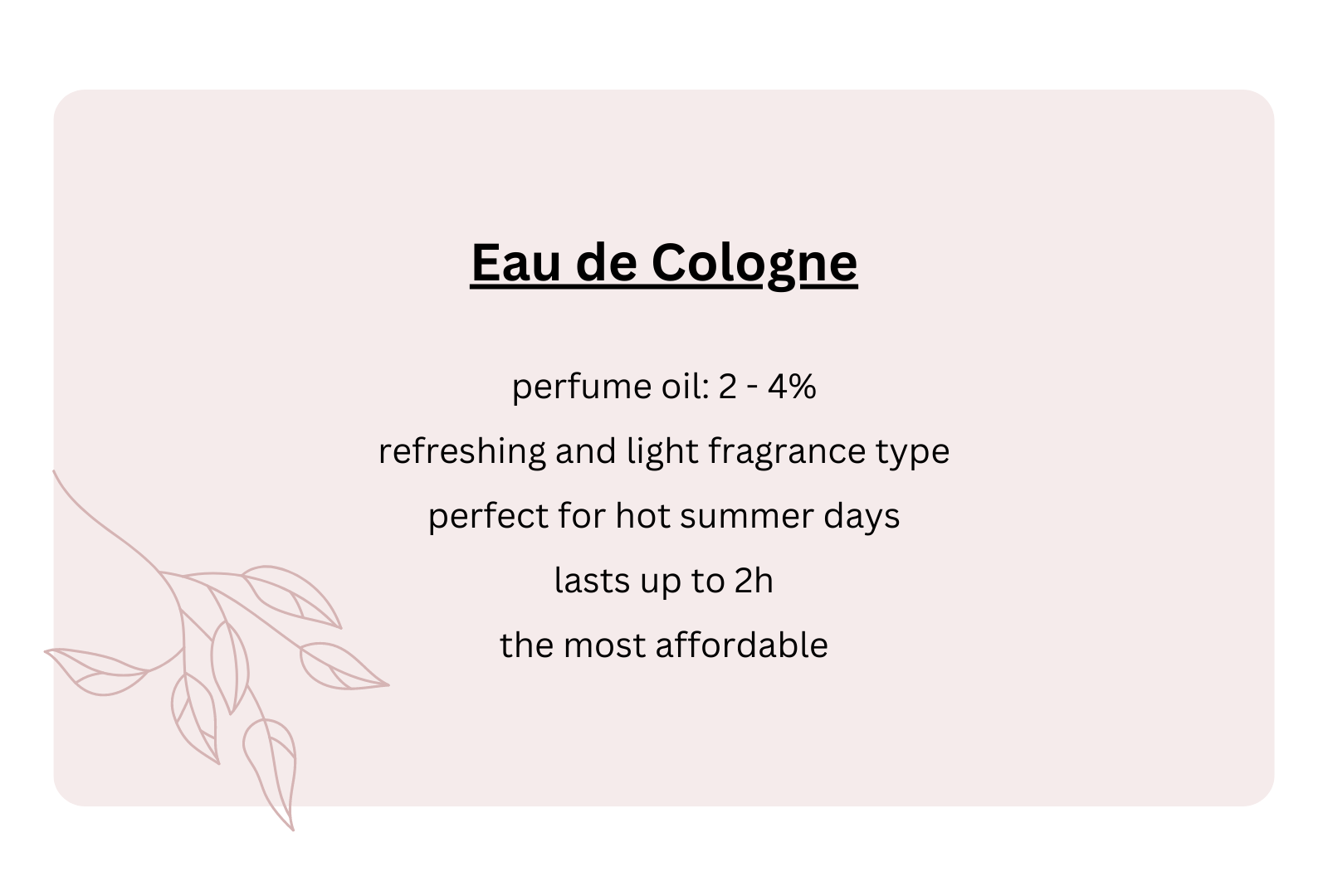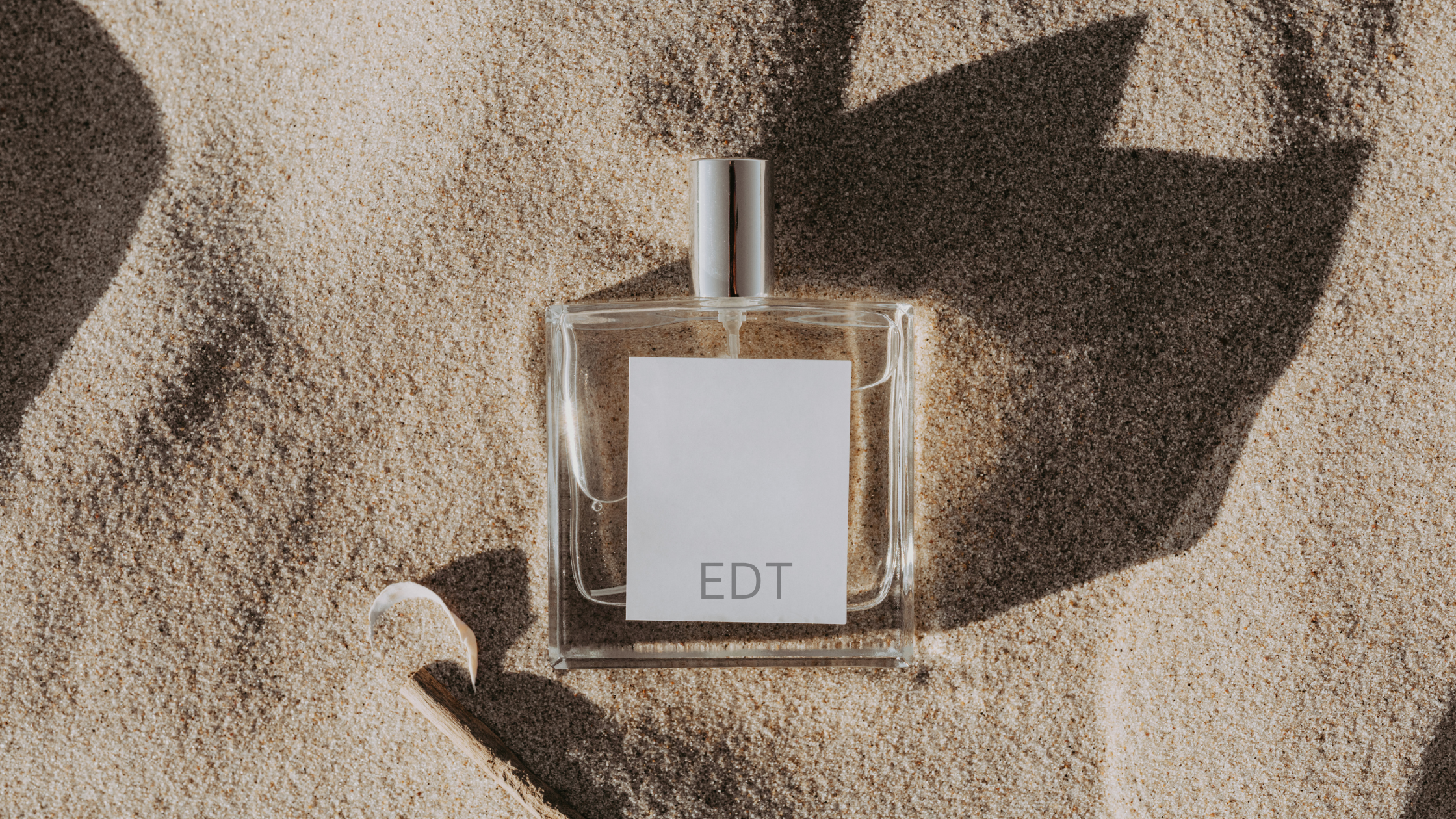
Perfume Riddles: A Dichotomy Between Eau de Toilette and Eau de Parfum
Understand the shades between Eau de Toilette and Eau de Parfum and carve out your own scent story. Decode the fascinating world of perfumery with Chez Pierre!
There's a particular charm that comes with wearing fragrances.
It's an invisible part of our style, and it has a significant influence on how people perceive and remember us.
But are you sure which perfume type you should wear and when?
Eau de Toilette and Eau de Parfum are the two main perfume concentrations and best-selling fragrance concentrations in the perfume industry.
According to Fact. MR research in 2021, Eau de Parfum holds a significant share of 34,7%, and Eau de Toilette with a share of 27,6%.
In total, both represent more than half of all fragrance products in market share and the reasons are numerous.
Here we will explain what is the Eau de Toilette, who should wear it, what the best time to use it and we will compare it with Eau de Parfum as well as other popular perfume combinations.
Delve into the intriguing world of fragrances with Chez Pierre.
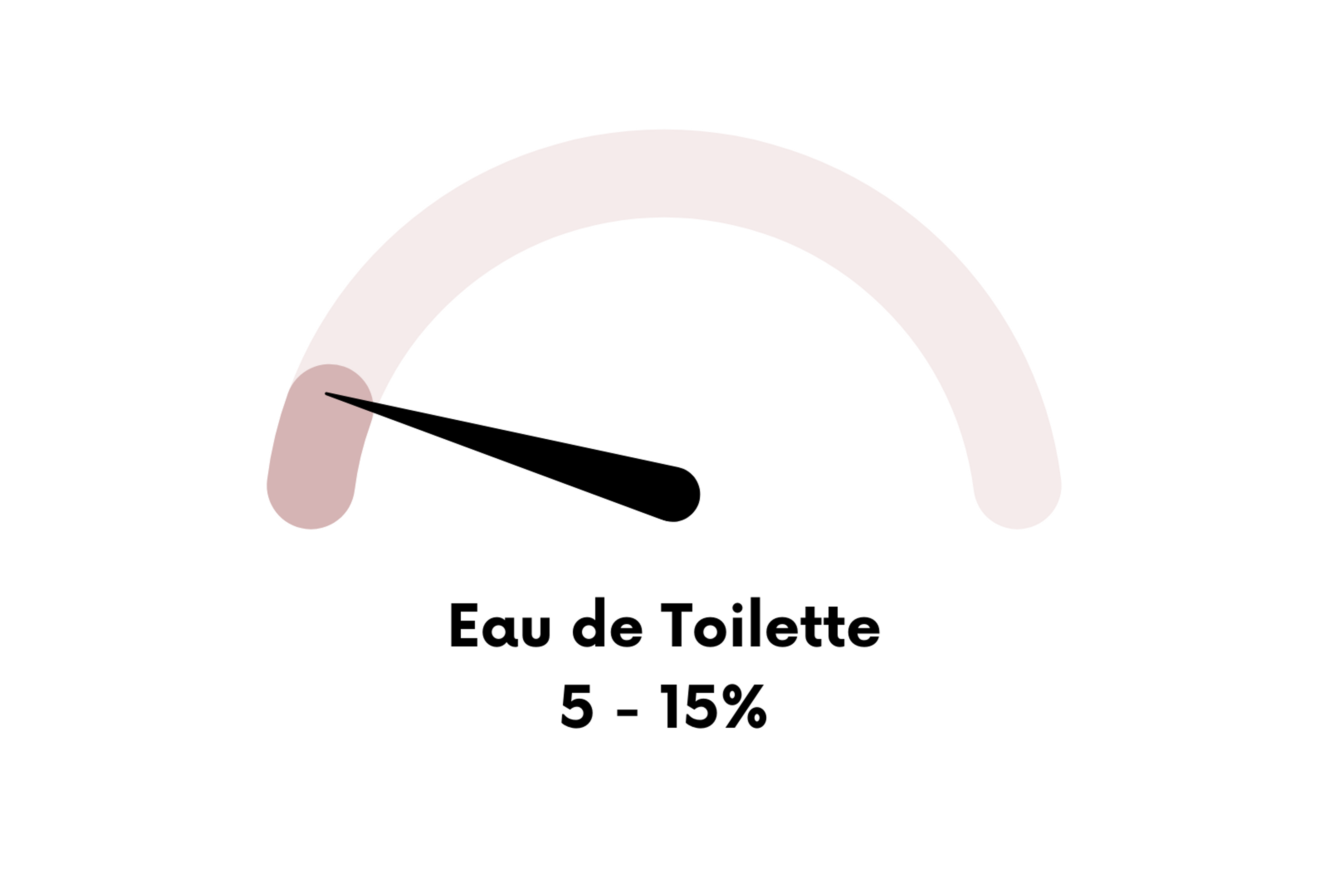
What is Eau de Toilette?
The term "Eau de Toilette" originated in France, deriving from the word "faire sa toilette" which refers to the act of washing and grooming oneself.
It initially indicated a refreshing morning routine item. Its history dates back to the 14th century, with its lighter scent making it a favorite in balmy, warm climates.
Eau de Toilette, translated literally from French as "toilet water," has a less intimidating meaning than one might expect.
Eau de Toilette is a lightly concentrated fragrance, typically having an essential oil concentration between 5-15%. This means it's ideal for those who prefer a softer, more understated scent experience.
It is suitable for everyday use and should last about 3 hours on your skin.
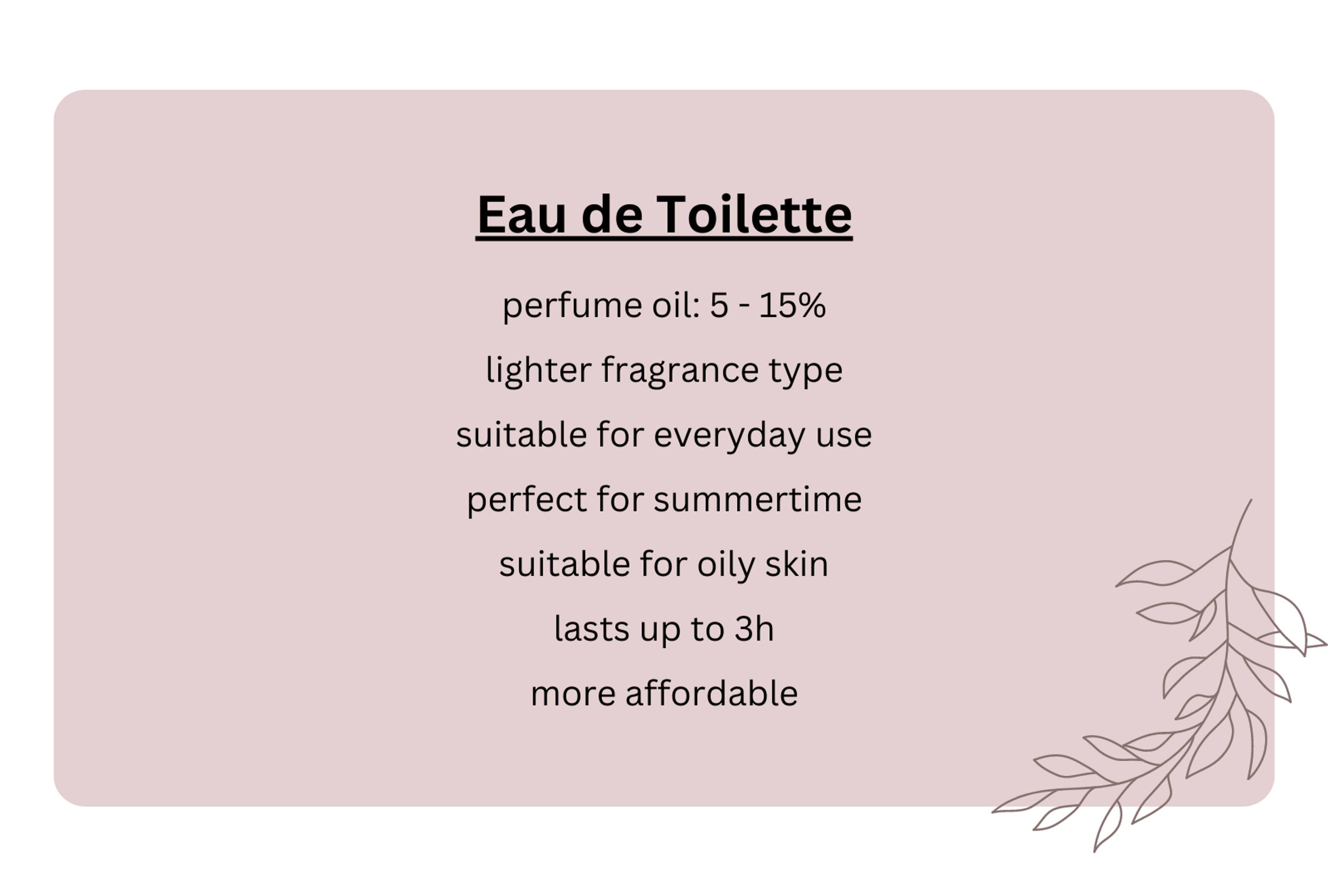
What is Eau de Parfum?
This is the most popular and widely used type of perfume with a concentration of fragrance oils between 15% to 20%.
Due to its higher concentration of fragrance oils, Perfume Eau can linger up to 8 hours or even longer, depending on the specific fragrance and individual body chemistry.
Eau de Parfum is an intense fragrance experience very popular among those who seek a long-lasting scent.
Our affordable, high-quality perfume dupes may be just what you were looking for!
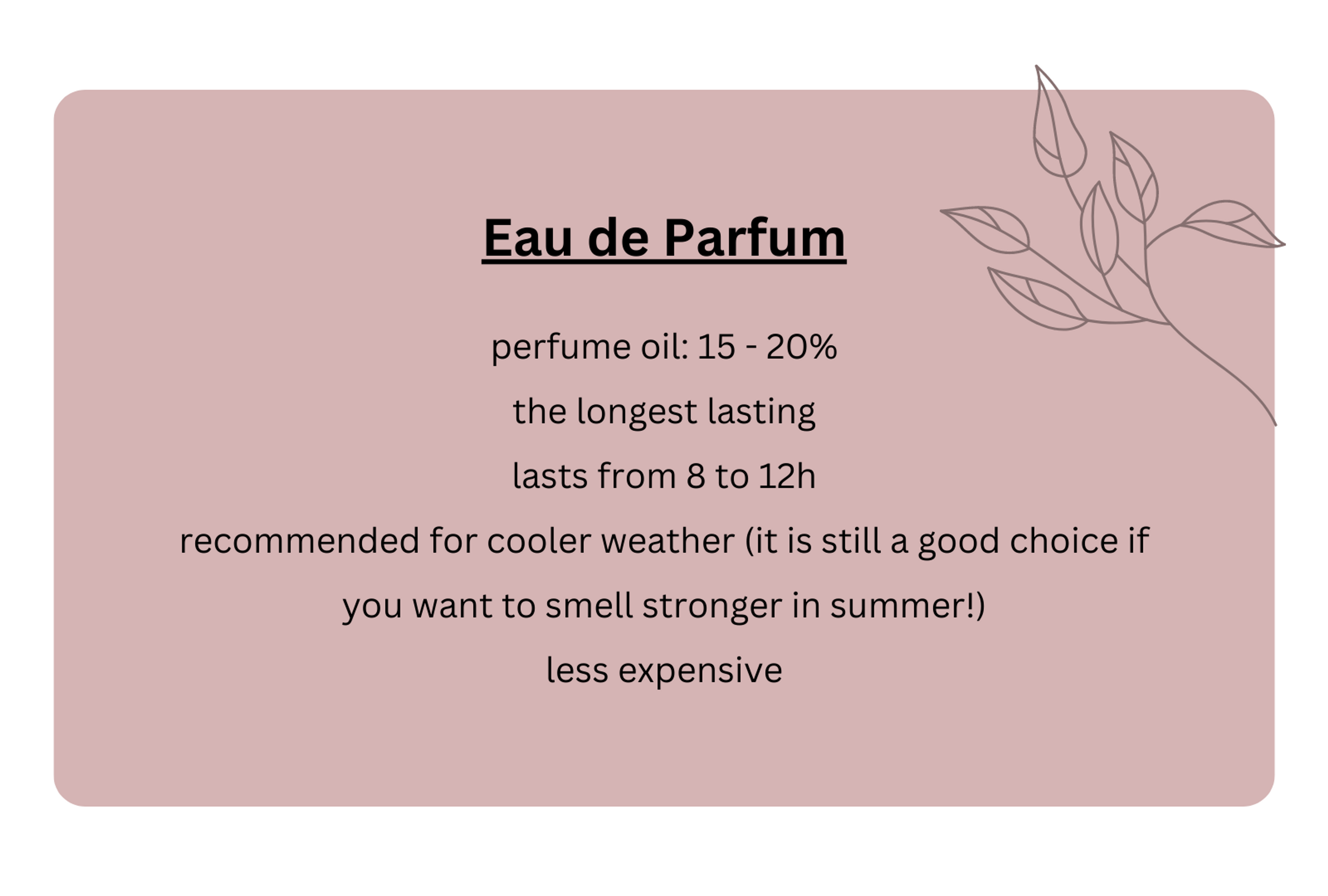
Eau de Toilette vs. Eau de Parfum: Which One to Use?
Because of its longevity, this perfume concentration suits perfectly for evening events or some special occasions. It is ideal in colder weather, where chilly air will do the magic with the scent.
On the other side, Eau de Toilette is perfect for everyday wear, especially in warmer weather or during the day, as its lighter scent won't become overpowering.
Toilette Eau has often been considered a safer option for those who prefer a more subtle scent or who are sensitive to strong fragrances.
If you're going to a formal event, a date, or an evening outing, a Parfum Eau with its longer-lasting and more pronounced scent might be a better fit.
When applying one of the fragrances you should consider the following characteristics:
- Weather: In colder months, an EDP's stronger scent can cut through the chill, making it a suitable choice. Conversely, in warmer months, an EDT's lighter, fresher scent can feel more refreshing and less overpowering.
- Personal Preference: Some people prefer lighter, fresher scents while others lean towards richer, more potent fragrances.
- Budget: Due to their higher concentration of fragrance oils, Eau de Parfum tends to be more expensive than Eau de Toilette. If cost is a significant factor, you might lean towards EDTs.
The best way to make a decision is to sample both types of fragrances on your skin and see how they evolve over several hours.
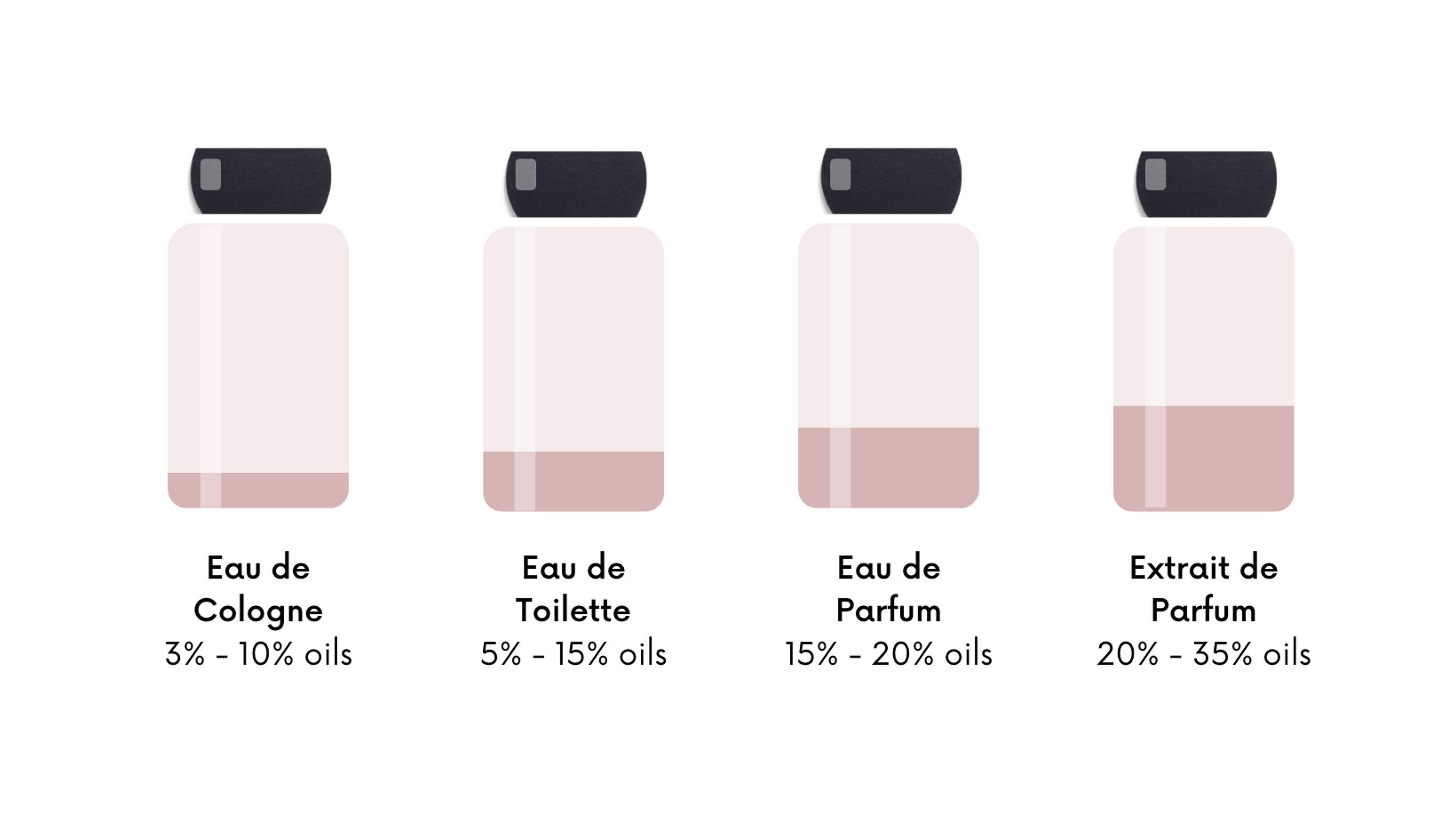
Parfum vs. Eau de Toilette: The Huge Contrast
While on the surface they might seem akin, being both members of the fragrance family, Eau de Toilette and Parfum (often referred to as "pure perfume") are markedly different.
- Concentration: Eau de Toilette contains about 5-15% perfume oil diluted in alcohol, resulting in a lighter scent. Parfum boasts the highest concentration of fragrance oils, usually between 20-30%, producing a richer, more potent aroma.
- Longevity: Eau de Toilette, due to its lower concentration, has a shorter lifespan, making it suitable for daily or casual use. Parfum's higher concentration ensures a long-lasting scent, often enduring an entire day or longer.
- Application: Eau de Toilette is typically sprayed, allowing for easy distribution of the scent. Parfum is generally dabbed on pulse points due to its high concentration, thereby extending its longevity.
- Price: Eau de Toilette is generally less expensive due to its lower concentration of perfume oils. Parfum, with its high concentration of fragrant oils and complex production process, is typically more costly.
Eau de Toilette and Extait de Parfum are like two sides of a coin, offering contrasting fragrance experiences.
The Similarities Between Eau de Toilette and Eau de Cologne
Both Eau de Toilette and Eau de Cologne serve a common purpose: to offer a fragrant addition to one's persona without overpowering the senses.
They share a characteristic subtlety in their scent profile, offering a refreshing and gentle aroma but Eau de Cologne has an even lower concentration of about 2-4% that lasts up to 2 hours!
Both Eau de Toilette and Eau de Cologne are suitable for warmer climates and seasons.
During summer or in tropical climates, these fragrance types are ideal, providing a cooling and refreshing olfactory experience.
Toilette Eau and Cologne Eau usually come with a more accessible price tag compared to their more concentrated counterparts like Eau de Parfum or Parfum.
This affordability, combined with their light and fresh nature, makes them popular choices for those entering the world of fragrances or those seeking a casual, everyday perfume.
Top 5 Best Eau de Toilette for Men
- Dior Sauvage Impression: A radically fresh composition, dictated by a name that has the ring of a manifesto. It's a fragrance featuring raw and noble notes of bergamot and ambergris.
- Acqua Di Gio Pour Homme by Giorgio Armani Impression: A masculine fragrance that's inspired by the freshness of the sea, it's a scent featuring marine notes, fruits, herbs, and woods.
- Bleu De Chanel Impression: A woody, aromatic fragrance that teams the invigorating freshness of citrus with the strength of an aromatic accord, highlighted by New Caledonian sandalwood.
- Paco Rabanne 1 Million Impression: A seductive blend of fresh and spicy leather, this fragrance is a fresh and sensual blend of notes, with a glittery shine of gold.
- Terre D'Hermes Impression: A symbolic narrative revolving around a raw material and its metamorphosis. It's a novel that expresses the alchemical power of the elements.
Top 5 Best Eau de Toilette for Women
- Versace Bright Crystal Impression: This fragrance is a reflection of pure sensuality, transparency, and luminosity, perfect for the confident woman who's not afraid to reveal her authentic and vibrant personality.
- Gucci Bloom Gucci Impression: It celebrates the joy and energy of youth, with a blend of Galbanum and dainty Cassis buds, which unfold into a feminine heart of tuberose.
- Creed Aventus For Her Impression: If you love to take risks and live life on the edge this is the right scent for you. Start a new adventure in your wonderland!
- Chanel Chloé Impression: Experience the ultimate floral fantasy with this delightful aroma and transport yourself on the endless glades of blossoming flowers and sweet citrus!
- Tom Ford Jasmin Rouge Impression: To reveal the source of beauty, look at your soul. If you don’t find anything there, no problem, just take this perfume!
How To Smell Good
Why Are Perfumes Expensive
How to Apply Cologne
Types Of Perfume
Eau de Parfum
Eau de Toilette
Eau de Cologne
Eau Fraiche
How to Make Perfume Last Longer
Where to Spray Perfume
How Is Perfume Made?
Best Niche Fragrance Houses and Perfumes
- Scented Majesty: Eau de Parfum - The Undisputed Leader of Fragrances
- Best Ways to Apply the Cologne-According to Our Cologne Experts
- How Many Types of Perfume Actually Exist?
- How To Smell Good - The Best Expert Advice You Will Ever Get
- From Morning Mist to Evening Echo: 12 Hacks to Empower Your Scent Presence
- Perfume Celebrities: Meet The Most Famous Perfume Brands In The World
- Essential Components: How Perfume is Created From Scratch
- Eau de Parfum - The Undisputed Leader of Fragrances
- French Elegance in a Bottle: The Rise and Allure of Top Perfume Brands
- Luxury within Reach: The Eau Fraiche Effect in the Cologne Cosmos
